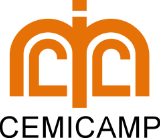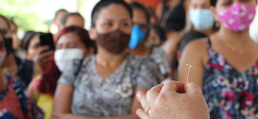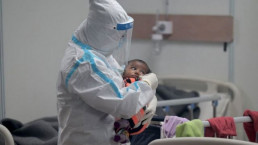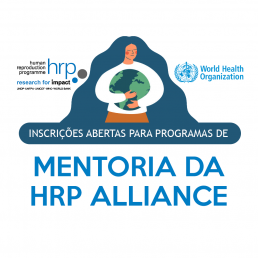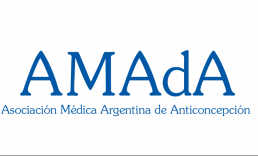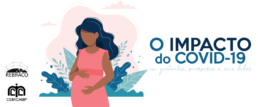Scholarship holders of the LID/HUB project were elected to represent the FCM - UNICAMP students
The Graduate programs of the Faculty of Medical Sciences (FCM) aim to provide the training of high-level research professors in the various areas of health knowledge. The persistent search for academic excellence and the commitment to the research activity constitute the basic substrate that guides the Programs.
Today the result of the election
for Student Representation 2022/2023 of the PPG Toco came out, and those elected are fellows of the WHO HUB project, and we would like to congratulate them on this achievement:

Holder: Charles M´poca, Mozambique
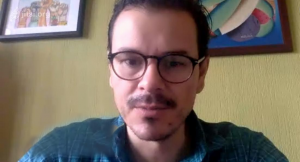
Substitute: Negli René Gallardo Alvarado
Click here to learn more about the Financial Support Program for Scholars from Developing Countries (HUB).
Ministry of Health trains doctors for IUD insertion in Amazonas; 1,154 women were assisted
 The Ministry of Health trained Primary Health Care (PHC) teams in the state of Amazonas to insert copper intrauterine devices (IUDs). With the action that lasted a week, 23 doctors were trained and 1,154 women were assisted with the device. The initiative aims to reduce the number of unplanned pregnancies and, consequently, contribute to the reduction of maternal mortality in the state.
The Ministry of Health trained Primary Health Care (PHC) teams in the state of Amazonas to insert copper intrauterine devices (IUDs). With the action that lasted a week, 23 doctors were trained and 1,154 women were assisted with the device. The initiative aims to reduce the number of unplanned pregnancies and, consequently, contribute to the reduction of maternal mortality in the state.
The training also strengthens family planning actions and expands access to long-term contraceptive methods for women living in remote and more vulnerable areas. The action also had the partnership of the State Department of Health of Amazonas (SES-AM) and municipal health departments.
"We know how difficult it is for many riverine and indigenous women to have access to contraceptive methods because they live in very remote areas and far from health services. The IUD is a safe and efficient alternative that can meet the needs of these women.”, highlighted the deputy director of the Department of Strategic Programmatic Actions of the Ministry of Health, Lana de Lourdes Aguiar Lima.
The device is a long-lasting, safe and effective method of contraception that does not depend on the user's habit to take effect. The IUD lasts for 10 years and is offered free of charge by the SUS to all states in the country. "It is not enough to just offer the method, it is necessary that professionals are qualified to perform the insertion procedure. That's why this project is so important to guarantee access”, reinforced Lana.
The initiative adds to the actions developed by the MS to reduce severe morbidity and maternal mortality from preventable causes, especially in the context of the Covid-19 pandemic. In December 2021, the ministry also carried out the training of 41 doctors and the insertion of 693 intrauterine devices in women in the state.
Reduction of maternal mortality
Earlier this month, the Ministry of Health launched, in partnership with the Federal University of Amazonas (Ufam), the State Department of Health of Amazonas (SES-AM) and municipal secretariats of 11 more municipalities in the Amazon, the project Telemonitoramento do pre- low and high risk birth and obstetric complications in the state.
The initiative was celebrated through a Decentralized Execution Term with UFAM in the amount of R$ 5.2 million, for the implementation of an obstetric telemonitoring platform that allows the integration, incorporation and monitoring of clinical data and information produced by the PHC teams, specialized outpatient care, Mobile Emergency Care Service (SAMU), small hospitals, low-risk maternity hospitals and reference maternity hospitals for high risk in the State of Amazonas.
The project also provides for the provision of consultation to health professionals with specialists available 24 hours a day to support the clinical management of prenatal pregnancy and the early detection and timely treatment of obstetric complications.
In 2021, the ministry also launched the SUS Prenatal Force Project to support the organization of low-risk prenatal care with a focus on reducing early maternal and neonatal morbidity and mortality, through the strengthening of clinical management actions during pregnancy. , diagnosis and treatment of syphilis and HIV during pregnancy, collection of cervical cancer screening and dental prenatal care.
352 professionals from the Family Health and Oral Health Strategy were trained in the municipalities of Manaus, Rio Preto da Eva, Iranduba, Presidente Figueiredo and Parintins. The actions continue in 2022 for the other priority municipalities.
Investments in Amazonas
The Federal Government, through the Ministry of Health, allocated more than R$ 30 million in resources to the state to reinforce qualification and care actions for pregnant and postpartum women. Of this total, R$ 16.6 million were allocated, through Ordinance No. 3,186 of November 26, 2020, for the renovation of the technological park of the maternity hospitals.
The objective was to provide adequate management of pregnant and postpartum women who need intensive care. In addition, another R$13.3 million was invested in carrying out strategic actions to support pregnancy, prenatal care and the postpartum period, as well as measures to reduce the spread of the new coronavirus, through Ordinance No. 2222 of August 25, 2020 and Ordinance No. 731 of April 16, 2020.
President CEMICAMP presents class in WHO Webinar

.Today, 01/11/2022, at the online lecture event " COVID-19 and Pregnancy Case Management Webinar Series " held by WHO the President of CEMICAMP, Dr. Luis Bahamondes, presented a class on COVID-19 and contraception in the postpartum/post-abortion period.
Other classes were also taught by professors from other institutions and you can check out all the topics covered below.
No Research About Us Without Us: Why Strengthening Research Capacity Is Critical to Everyone's Health
16 de November de 2021oms,News
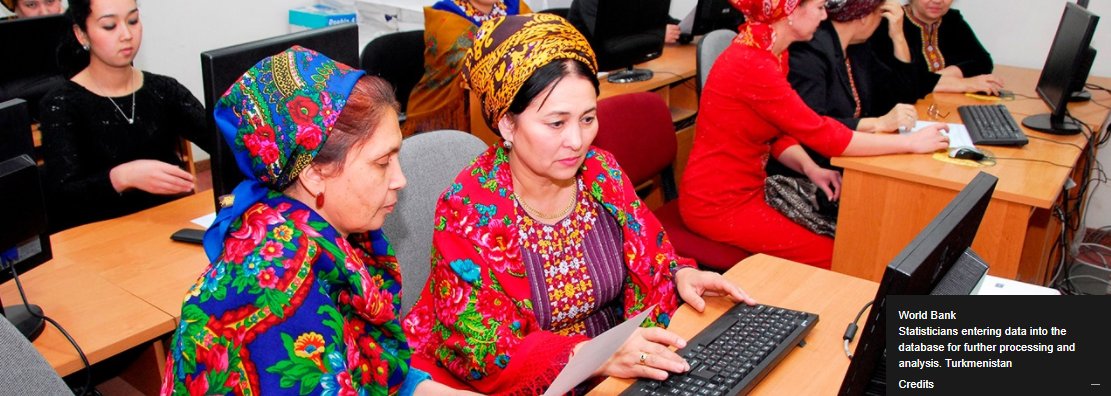 High-quality research is crucial for effective health policies and programs in all countries, but research capacity is not equally available across the world.
High-quality research is crucial for effective health policies and programs in all countries, but research capacity is not equally available across the world.
 “We need to invest in young researchers, women researchers and the ability of the mid-level researcher to develop and apply their skills,” explained Malabika Sarker, Chair of the Advisory Board of the HRP Alliance. “If we really want to improve search capability, it can't just be top-down.”
“We need to invest in young researchers, women researchers and the ability of the mid-level researcher to develop and apply their skills,” explained Malabika Sarker, Chair of the Advisory Board of the HRP Alliance. “If we really want to improve search capability, it can't just be top-down.”
Here are four reasons why strengthening research capacity – known as RCS – is crucial for a world where all people achieve the highest possible level of sexual and reproductive health and rights (SRHR):
1) RCS strengthens research communities for national, regional and global leadership
Strong researchers, institutions and infrastructure are essential to generate data that accurately reflects populations and promotes gender equality and human rights.
Since 2017, the HRP Alliance has collaborated with national and international research institutions in low- and middle-income countries to help build and connect a sustainable base of new researchers with SRHR expertise. This allows researchers to focus and publish on specific national and regional needs and interests. It also creates a community that can support junior researchers on the long career path ahead.
More than 2,200 individuals from 69 countries have been supported by the HRP Alliance through short courses, as well as doctoral and master's degrees. Two recent doctoral graduates were involved in large HRP studies of the UN Special Research Program in maternal health and family planning.
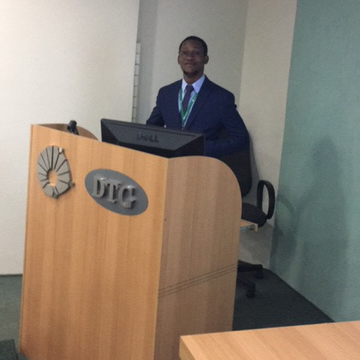
“As a WHO-HRP Fellow, my journey has not been a solo effort,” said Charles M'poca, presenting his research on maternal mortality and SARS-CoV-2 at the HRP Alliance Global Meeting in September. Charles, who completed his master's with the support of the HRP Alliance, has now started his PhD at the University of Campinas, Brazil through CEMICAMP.
2) RCS creates an enabling environment for researchers
At the heart of the HRP Alliance are the regional research capacity building centers - academic institutions selected to lead and strengthen SRHR research capacity in their regions. There are currently 7 HRP Alliance hubs: Campinas, Brazil; Ouagadougou, Burkina Faso; Accra, Ghana; Nairobi, Kenya; Karachi, Pakistan; Khon Kaen, Thailand; and Hanoi, Vietnam.
 The HRP Alliance connects researchers and institutions at these centers to WHO offices, WHO Collaborating Centers and other special WHO programs and partnerships, as well as ongoing research projects coordinated by the HRP.
The HRP Alliance connects researchers and institutions at these centers to WHO offices, WHO Collaborating Centers and other special WHO programs and partnerships, as well as ongoing research projects coordinated by the HRP.
In addition to creating research opportunities, HRP Alliance hubs are strategic responses to power dynamics in global health. Power imbalances can create barriers to participation as equals, especially for some researchers in low- and middle-income countries, and contribute to limited ownership of global health research that directly concerns their communities.
The HRP Alliance also promotes fair authorship of scientific articles, encourages research groups to include women in leadership positions, and provides structured mentoring for early-stage researchers.
“My mentor recognized my dedication to research at a time when I really needed a program like this, helping me to prioritize,” explained Princess Acheampong, a postdoctoral researcher from Ghana and a member of the first cohort of the HRP Alliance mentoring program. “I also connected with other fellows in the program, and now we are developing a grant proposal using mobile phones to improve maternal health service uptake in Ghana, Nepal, and Pakistan.”
3) RCS facilitates rapid response to health emergencies
Outbreaks and health emergencies create the need to act quickly. They are also a reminder that high-quality evidence is critical to shaping real-time public health responses.
To date, the HRP Alliance has funded 23 of these projects in collaboration with WHO partners, including joint calls for community research on health emergencies during the Zika virus outbreak (in 2016) and the mass migration crisis in the Americas (in 2019). ).
These collaborations allowed the emergence of new evidence from Brazil, Colombia and Peru that strengthened knowledge about the relationship between infectious diseases of poverty and sexual and reproductive health and rights. This is relevant both in the context of Zika and the current COVID-19 pandemic.
The HRP Alliance has also helped to shed research light on migrants and refugees, whose sexual and reproductive health and rights are often restricted – if not outright disregarded. The latest call for proposals is supporting 11 research groups in Latin America to conduct high-quality, context-specific research based on local and regional priorities, with an emphasis on integrating gender equality and human rights considerations, as well as strengthening search capability.
The HRP Alliance centers have also proven essential to the COVID-19 research response, collaborating closely with the WHO. Through rapid and effective networking with HRP Alliance partners early in the pandemic, COVID-19 research networks were quickly established. The centers are leading WHO and HRP research related to the impact of the pandemic on health systems, pregnancy and COVID-19 risks, and women's experiences with contraceptives and abortion during the pandemic.
4) RCS strengthens the shared goals of all involved
Effectively strengthening research capacity is not a philanthropic side project: it is a fundamental part of sustainable SRHR research ecosystems and improving SRHR for all.
Since the launch of the new strategy in 2016, researchers supported by the HRP Alliance have made significant contributions to the implementation of WHO/HRP Studies in various countries, building the evidence base on critical sexual and reproductive health and rights issues. The HRP Alliance has also shown that opportunities to participate in larger research studies can strengthen individual research capacity.
“Sexual and reproductive health and rights are a fundamental component of universal health coverage, but efforts to strengthen research capacity to generate evidence to guide the provision of sexual and reproductive health services are particularly scarce,” said Anna Thorson, Head of the Unit, Department of Sexual and Reproductive Health and Research, WHO / HRP.
“HRP Alliance has a critical role to play in building networks, supporting, listening and learning from each other's work, and strengthening collaborations that will improve SRHR for all.”
Registration open from December 1st to 15th, 2021 for the HRP Mentorship - Alliance
16 de November de 2021oms,News
ACCESS THE OFFICIAL LINK HERE
The goal of the HRP Alliance mentoring program is to support early career researchers in their professional and leadership development through mentoring support from senior researchers and colleagues. The program aims to stimulate learning and the acceptance of new challenges.
- To develop a cadre of mentors from around the world who express interest in becoming mentors to early career HRR researchers identified in the broader HRP Alliance network. Special attention will be given to recruiting mentors from SRHR research centers of excellence located in LMIC and/or WHO Collaborating Centers.
- Support mentoring relationships through training and capacity building activities.
- Support the professional and leadership development of identified early career researchers through a competitive process open to the larger HRP Alliance network.
CEMICAMP President becomes honorary member of AMAdA

The Asociación Médica Argentina de Anticoncepción (AMAdA) was founded in 1999 and has as one of its main goals: "to disseminate and promote scientific knowledge related to contraception", collaborating to achieve the highest standards in Sexual and Reproductive Health.
OAB Campinas fundraising campaign
The OAB Campinas Social Action and Women Lawyer Commissions start a solidarity campaign on behalf of the most needy patients attended by Hospital da Mulher Prof. Dr. J. A. Pinotti-CAISM. With the support of CEMICAMP (Research Center for Reproductive Health of Campinas), the initiative seeks to raise funds for the purchase of basic food baskets, medicines, personal hygiene products, clothes, orthoses, prostheses, among other items necessary for women from needy families and social vulnerability through the Volunteer Center.
According to the president of the Social Action Commission, Gabriela Nicolau Olmedo Consul, the funds raised in the campaign will be managed by CAISM and used to purchase items, according to the needs of each patient so that the largest number of women in difficulty are attended to at the moment. current pandemic.
The campaign will take place by means of a bank deposit (via PIX) in the account of the social responsibility area of CEMICAMP, with the amounts being fully transferred to CAISM. The presidents of the commissions of OAB Campinas, lawyers Gabriela Consul and Fábia Bigarani, are leading the organization of the campaign and the mobilization of the advocacy and the society.
to contribute
Key pix: malice@cemicamp.org.br
Itaú Bank – Ag. 0716
Account - 99154-2
CNPJ - 49,409,816/0001-62
Get to know our Social Actions, click here.
Research protocol on the impact of Covid-19 on pregnant and postpartum women and their babies

To better understand how Covid-19 infection during pregnancy can impact women and their newborns, the World Health Organization has developed a standardized investigational research protocol.
The protocol addresses key research questions, facilitating the collection and analysis of data and samples, allowing the comparison and unification of information from different locations, that is, different countries and centers can develop standardized studies with the same parameters, making them easily comparable. and generating much safer conclusions.
This protocol investigates the outcomes of pregnant or postpartum women who were exposed to the virus, and compares them with those who were not.
infected.
The aim is to determine whether infection with SARS-Cov-2 (Covid-19) during pregnancy increases the risk for problems in the woman or newborn. In addition, the study will be able to quantify the rate of vertical (from mother to unborn baby) and postnatal transmission.
It is expected that the findings of this study will be widely disseminated and used to inform the development of recommendations on the surveillance, management and counseling of women before, during and after pregnancy.
The implementation of this study protocol will help to shape public health policies and also future research protocols.
Since March 2020, in Brazil, Argentina and Chile, the adaptation and performance of this project has been carried out by REBRACO (Brazilian Network for the Study of Covid-19 in Obstetrics) and has several research centers in maternal and child health.
Research "Men's Perspective on Violence Against their Partner
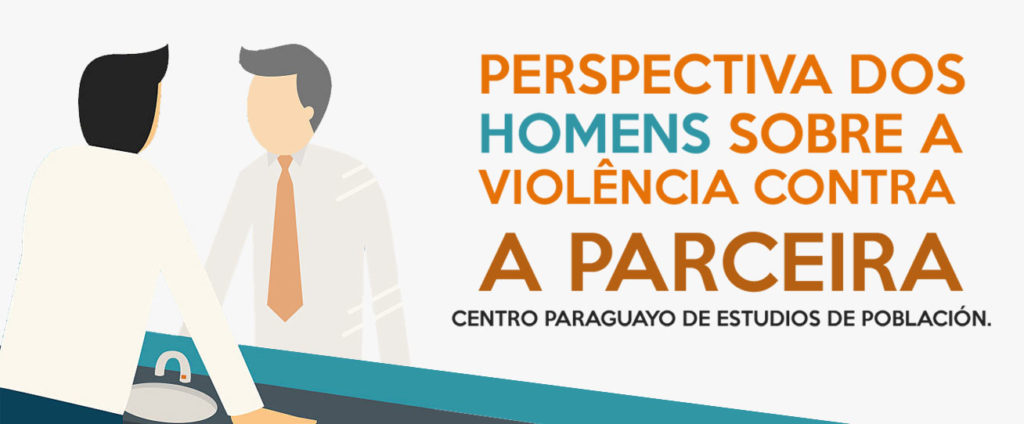
It has long been studied how what we experience during childhood reflects on our adult life, including issues involving violence against women. A Doctor Maria Jose Osis She has a degree in Social Sciences from UNICAMP, a PhD in Public Health from USP, and is a CEMICAMP researcher. He recently collaborated on a research project "Perspectiva de los hombres sobre la violencia de pareja en Paraguay" of the Centro Paraguayo de Estudios de Población. The study brought, among many data, expressive statistics about how childhood punishments can perpetuate violence against a partner and its naturalization. In the study, 67.4% of the respondents consider moral violence against their partner justifiable, and 26% have witnessed physical aggression against their mothers or stepmothers. In addition, 89% suffered some kind of physical or moral punishment during childhood, and of these, 45% said they perpetuate attitudes of violence against their partners. The study was conducted with 1,000 Paraguayan men aged 29-40 and they were asked statements about: attitudes, beliefs, opinions, experiences, gender roles, rights, and perpetuation of family violence. The answers showed, in general, largely equitable opinions related to work, childcare, and gender roles, but this still contrasts with official data on the distribution and participation of men in unpaid domestic work, and the perception of violent attitudes as something justifiable and/or natural. This scenario is due to cultural, religious and socioeconomic factors, besides the already mentioned physical and moral aggressions suffered in childhood. The complete article with all the results and graphics can be accessed here: http://www.cepep.org.py/archivos/perspectivahombreviolencia.pdf
President and Senior Researcher Cemicamp makes up the list of the most influential researchers in the world.
The Doctor. Luís Bahamondes, president of CEMICAMP, and the Senior Researcher, Dr. Aníbal Faundes, makes up the list of the most influential scientists in the world!
The Journal Plos Biology (JPB) has just published the list of the 100 thousand most #influential #scientists in the world.
In addition to these #researchers, 600 others are also Brazilian, 54 belong to Unicamp - Universidade Estadual de Campinas and 10 are professors at the Faculty of Medical Sciences at UNICAMP. They are: Aníbal Faúndes, Luis Guillermo Bahamondes, Marilda Mazzali, Fernando Cendes, Lício Velloso, Mário José Abdala Saad, Gilberto De Nucci, Vital Paulino Costa, Aníbal Vercesi, and Sandro Esteves. Conducted by a team of researchers from Stanford University (USA), the study titled “updated science-wide author databases of standardized citation indicators” analyzed the Scopus database, which establishes two main researcher rankings: one measuring the researcher’s impact over their career and another assessing the impact of the researcher’s scientific output in a single year.
Check the complete list of UNICAMP researchers who are in the ranking of the 100,000 most influential in the world here: https://bit.ly/pesquisadoresunicamp
